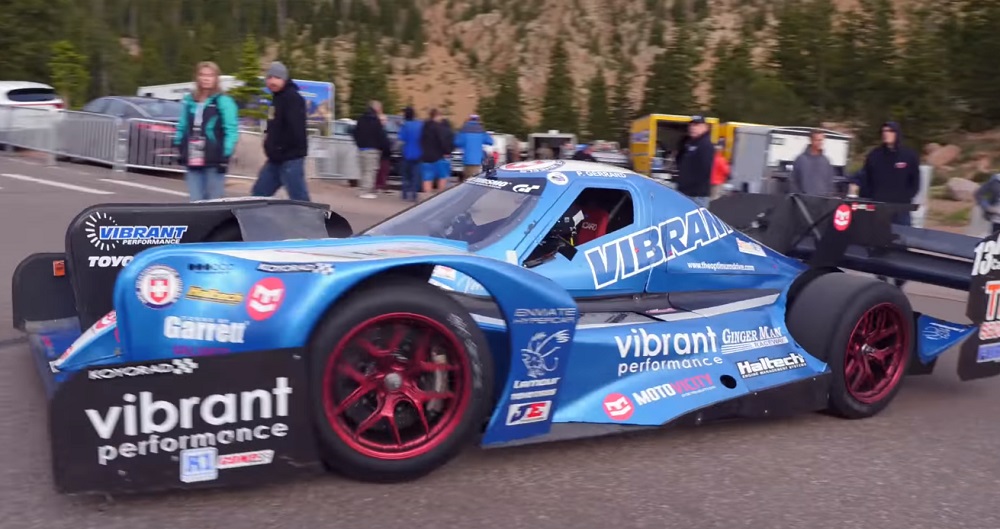Tuning a 1,000 HP Car to Race at 14,000 Feet
Enviate Hypercar balances the tune, cooling, and more to make the most of its LS engine at the Pikes Peak International Hill Climb.
Wrangling a 1,000-horsepower twin-turbo LS setup can prove difficult on a drag strip. How crazy is it, then, to see a purpose-built prototype racer like the Enviate Hypercar taking four-digit power up the Pikes Peak International Hill Climb?
New Zealand’s High Performance Academy caught up with the Enviate’s EFI tuner Adam from Smart EFI in Colorado Springs to talk about the Hypercar. Pikes Peak presents a series of unique challenges for any car, but designing the EFI system required leaping over several major hurdles.
The obvious one comes from the thin air near Pikes Peak’s 14,000-foot summit. A twin-turbo setup alleviates some aspiration problems. However, Adam explains that the thinner air requires more fuel at the top of the mountain than the starting line, though only about 7 percent more. That’s only about 10 percent more than at sea level.

The bigger concern with thin air, it turns out, results from the inability to dissipate heat at altitude. Managing the Enviate’s cooling system became a priority and the narrow testing windows mean the team had to get the most out of it. Overheating problems still plagued the car and turned its performance into a suboptimal result, although still good enough for second in the Unlimited class.
Ultimately, the Enviate makes about 16 pounds of boost to give out about 1,000 horsepower at sea level. The team project that driver Paul Gerrard could have run the climb in under nine minutes if everything had worked right. However, the overheated engine stalled at one point and Gerrard had to bumpstart it on a downhill section. That cost a heap of time and resulted in a 10:19 climb.
Check out the High Performance Academy’s video for a great technical discussion not just on the Enviate Hypercar’s setup but also on tuning conditions and engine-management theory.
